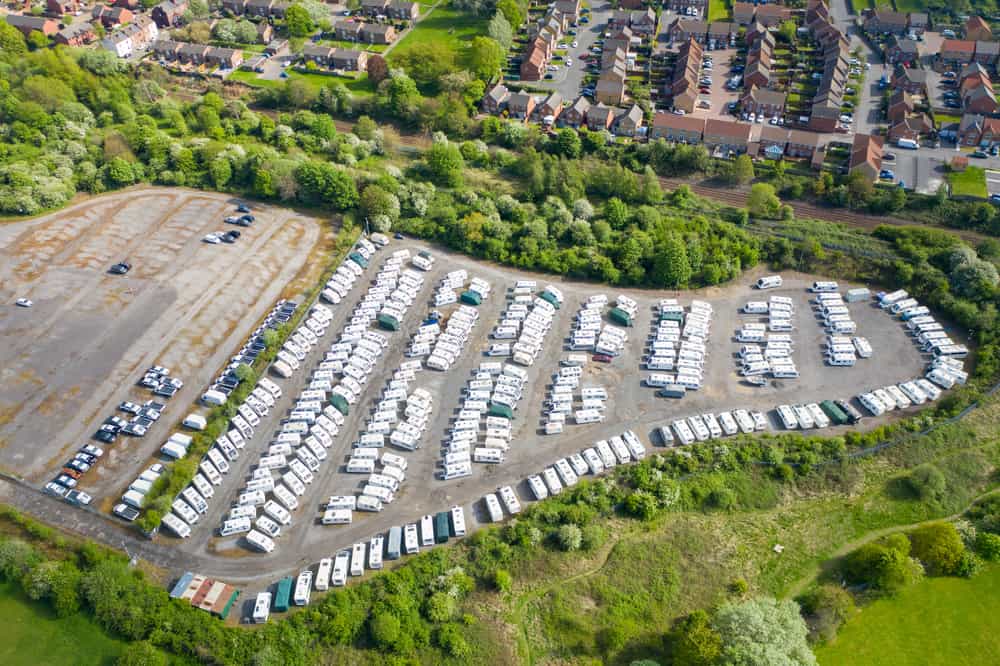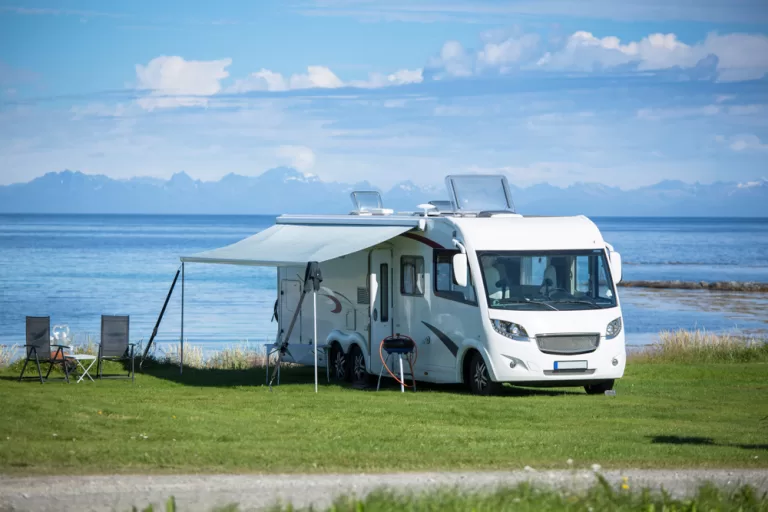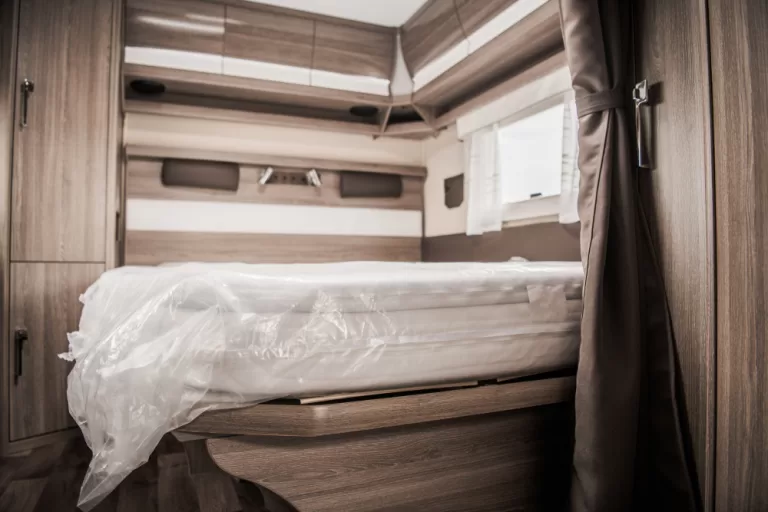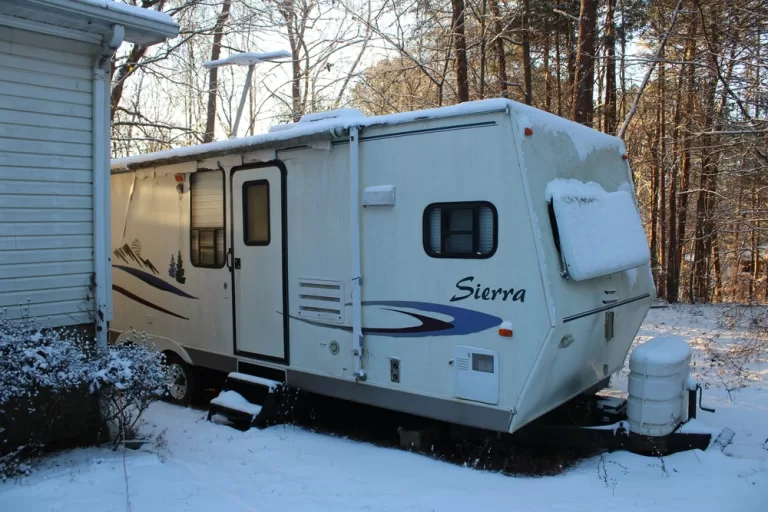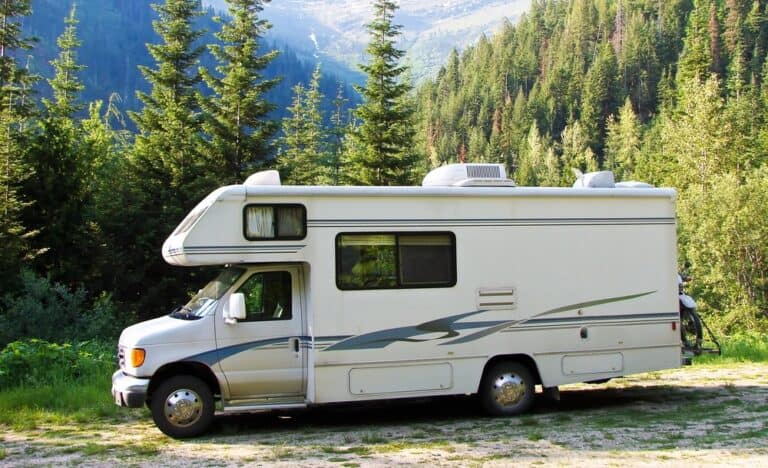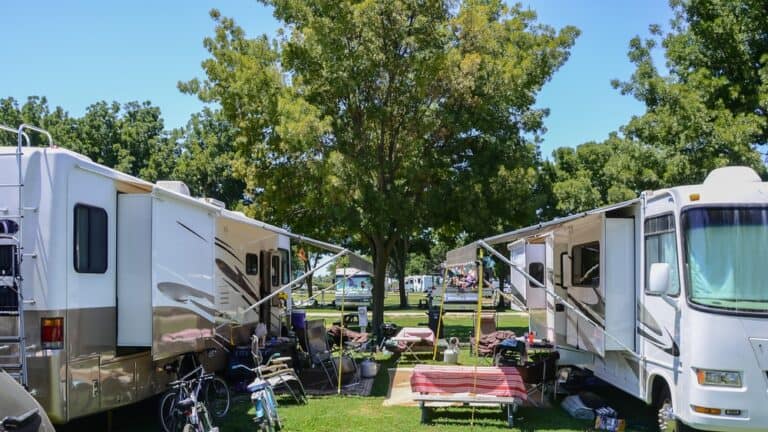Pros and Cons of RV/Boat Storage
When it comes to protecting RVs and boats, you’ve likely had plenty of options at the forefront of your mind. RV/Boat Storage is my go-to method for taking care of my own RV. But before you take the plunge into convenient outside or interior storage spaces, it helps to identify any advantages or disadvantages that come with this choice. To help navigate this decision easily, I’ve broken down a few of the most important tips you should consider when committing to a storage facility experience with RVs and boats!
Pros of RV/Boat Storage Facilities

- Secure indoor storage option – RV and boat owners can rest easy knowing their vehicles are stored in a secure facility.
- Convenient location – Most facilities are located close to major roadways and highways, making it easy to access your vehicle whenever you need it.
- 24-hour surveillance – Most facilities have 24-hour surveillance, security features, and a security system ensuring that your property is safe.
- Cost savings – Storing an RV or boat in a storage facility can help owners save money on insurance costs, since the vehicles will be covered by the facility’s policy.
- Short term leases available – Many RV and boat storage facilities offer short term leases for those who may not need long term storage options.
- Variety of sizes available – Facilities offer a variety of sizes to fit all types of RVs and boats from enclosed storage to open storage.
- Long term discounts available – Many facilities offer discounted rates if you commit to storing your vehicle for a longer period of time.
- Convenient access times – Most facilities have extended access hours so you can retrieve your vehicle at any time.
- Space saving – With an RV or boat stored away in a facility, homeowners no longer need to worry about taking up valuable space on their property with such large vehicles.
- Climate control options – Storage units are designed to keep temperatures low and humidity levels in check, helping prevent damage from extreme weather conditions.
Cons of RV/Boat Storage Facilities

- Accessibility – Depending on the location of the facility, it may be difficult to access your RV or boat quickly.
- Limited customization – Storage units are typically only accessible from one side, meaning there is limited room for adding personal touches to make it unique.
- Theft and vandalism – While security measures are in place, there is still a chance of theft or vandalism at a storage facility.
- Noise levels – The noise level can be higher than expected due to other vehicles being stored nearby.
- Insurance costs – Storing an RV or boat in a facility may not qualify for insurance coverage under owner policies, resulting in additional costs.
- Damage from pests and rodents – Facilities may not have adequate pest control measures in place which could result in damage to your vehicle over time.
- Ventilation issues – Without proper ventilation, moisture can build up inside the storage unit leading to mold and mildew growth.
- Damage from weather conditions – Storage facilities cannot protect against extreme weather conditions such as hailstorms or tornadoes which could result in damage to your vehicle.
- Lack of maintenance options – Many facilities do not offer repair or maintenance services so you will need to arrange somebody else to provide these services if needed.
- Potential size limitations – Some storage facilities may not have enough space available for larger RVs and boats, limiting the number of vehicles they can store.
Average Monthly RV/Boat Storage Prices

Storing an RV or boat in a storage facility is becoming increasingly popular due to the convenience, cost savings, and security benefits it provides. The average monthly price for storing an RV varies depending on the size of the vehicle and the location of the facility. Generally speaking, smaller RVs will cost less than larger models. On average, you can expect to pay between $50-250 per month for outdoor storage and $150-$600 per month for indoor storage. The same applies when it comes to boat storage cost. Boat storage options will typically be the same as RV storage options at any of these facilities.
Overall, the exact price will also depend on whether the facility offers indoor or outdoor storage options with outdoor units usually being cheaper. parking spaces
My Quick Tips for Storing an RV/Boat

- Clean the interior and exterior of your RV or boat before storing it in order to make sure dirt and debris don’t accumulate over time.
- Make sure all windows and doors are shut tightly so that no moisture can get inside.
- Check the tires periodically for proper inflation, as this will prevent them from becoming dry rotted or damaged due to lack of air pressure.
- Cover the vehicle with a tarp or other water-resistant material, if possible, in order to provide an extra layer of protection from rain, snow, and other harsh winter weather conditions.
- Remove all food products and any other items that could attract pests or rodents while your vehicle is in storage.
- Disconnect the battery so that it doesn’t drain during its time in storage.
Conclusion

Overall, there are a variety of pros and cons to consider for RV owners when it comes to every kind of RV/boat storage option. From the added security and convenience to the potential costs associated with storage, it’s important to examine all factors and determine which option is best for you. Be sure to research various facilities available in your area and compare their rates as well as other features before making a decision. With careful consideration, you can be sure that you’re making an informed choice about the storage option for your RV or boat that works best for you.
PLEASE NOTE: I participate in the Amazon affiliate program, which provides a means for me to earn a small commission by linking to products there. My opinions are my own and I only link to products I can recommend to friends and family with total confidence. Using these links won’t cost you an extra dime!
Looking for some more RV advice and guides? Check out my other blog posts.

